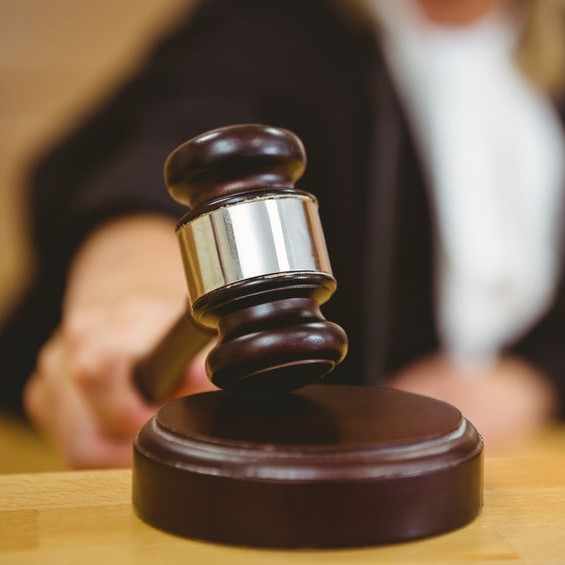Appealing a case
Legal cases are not always appealed, although on television, they seem to be. There is no automatic appeal, there has to be proof of a legal basis. Because one party lost the decision, they don’t automatically get to appeal. If an appeal is allowed, the person filing the appeal must get an appeal bond.
You may be a party of a case that goes to court without appeal being filed. Not all cases have an appeal filed. It is not an automatic process. Whether pursuing an appeal should take place is a complex matter and the appealing client, it is important to know as much as possible about the case so that they are making the right decision form themselves.
Even though many appeals are filed in federal and state courts in search for a lower court’s decision to be overturned as filing client perceives the findings of the first trial to be wrong, there are not very any appeals that result in a decision reversal.
This is the reason that any appellant attorney will stress the importance that everything about the case and the trial be thoroughly evaluated first. Knowing how to frame the issues at hand will give the appellant a better chance to win the appeal.
Filing an appeal is an expensive process, which is why an appeal bond is required. Since most decisions made in a trial, commonly domestic relations are based on facts both parties present are being disputed. The trial judge made their decision on the facts as to be true. The cost for appellate courts is for the courts to research what legal error exists if any.
The second reason the appeal process is expensive and requires an appeal bond is that it is reasonable to believe that the “impartial” decision-maker, the judge, came to the legal conclusion based on the facts presented. Those same facts will be present again in the appeal because no new evidence or witnesses will be allowed.
What is the purpose of an appeal?
One of the parties in a case, typically the one that lost, will find with the court of appeal, what is it to have the case and trial to be reviewed by a higher court. If they allow an appeal, this does not mean the case retried or a new trial established. Typically, new evidence and new witness are not considered, just the arguments from both sides of the case. Any alleged errors from the first trial are brought up, or possible errors of how the law was interpreted. There are limits to the appeals process in most cases. The party appealing the finding is required to pay for an appeal bond until the appeal is determined and judgment is paid in full if the court doesn’t rule in their favor. Once the judgment is paid in full, the judge will release the appeal bond.
What is to make an appeal?
In the State of Kansas, the statutes provide that the judgment entry is subject to the requirements and specifications which provides that the judge must sign a journal entry before the judgment becomes effective. The judgment must be on file before an appeal can be filed.
Once the judgment is filed, within 30 days a Notice of Appeal must be filed with the Clerk of the District Court. This filing is jurisdictional and if the Notice of Appeal is late, the appellate courts will not consider it. If the other party in the case believes there was an error in the trial court, they must file a cross-appeal within 21 days, this is referred to as a Notice of Cross-Appeal.
The next action required is to file a Docketing Statement within 60 days with the Appellate Courts Clerk. This will lay out the essentials of the appeal. This should include the pertinent facts summarized, the questioning of the law, and the relevant dates on which movements occurred during the original trial court. This is not jurisdictional and will not affect the appellate court to proceed with the appeal if it is late.
What are the 3 types of appeals?
There are three court appeal cases are heard in:
- The Kansas Court of Appeals is seated by judges that do not hold court for trials. They review trial records, both parties’ briefs, and hear oral arguments by appellant attorneys. They will assess the law fitting the trial and given a written opinion which is published in bound book form.
These judges preside over appeals from civil and criminal trials in the Kansas district courts, with the exclusion of appeals directly filed with the Kansas Supreme Court, and cases that have jurisdiction in habeas corpus movements.
- State supreme court has obligatory jurisdiction in the administrative agency, civil, criminal, disciplinary, federal court’s certified questions, and original proceeding cases. This appeals level also has optional jurisdiction in an administrative agency, civil, criminal, interlocutory decisions, juvenile, and original proceedings.
- Federal district courts may hear appeals from state courts and for any federal cases or lawsuits, this court is the point of origination.
How successful are criminal appeals?
In 2015, less than nine percent of all appeals file resulted in a reversal of the lower court decision. Because not every civil or criminal case has the grounds to file for an appeal, it is always to the defendant’s benefit to hiring an experienced appellant attorney for the type of case tried.
An experienced attorney will analyze the case and findings and determine if suitable for an appeal. Because of the complexity and strict deadlines for filing an appeal, this needs to be streamlined and the client’s punctuality to fulfill the attorney’s request is a must.
What happens if I lose an appeal?

This is where the appeal bond comes into play. If your appeal is unsuccessful, the bond is effective until the judgment is paid. This includes any accrued interest and any cost and fees awarded to the other party. After all required monies are paid in full and the debt is settled, the court will discharge the bond, and the appellant is released from the judgment.
There are diverse types of cases that can be appealed, each are handled in a different way during an appeal process. Those diverse types are within these classifications:
- A Civil Case – either party can appeal the judge’s verdict.
- A Criminal Case – a guilty verdict can be appealed by the defendant if found guilty. However, if the defendant is found not guilty, the government does not have an appeals right.
- A Bankruptcy Case – a judge ruling on a bankruptcy can be appealed to the district court. There are three judges that make a unanimous decision on appeals after reviewing the appellant’s legal argument.
- Other Appeal Types – in the case of a federal administrative agency that the litigant is not satisfied, they can file a petition for the agency’s decision to be reviewed by a court of appeals. This would be for cases involving Social Security benefits.
When you need appeal bail bonds in Wichita, KS, Owen’s Bonding Co. can help! Call 866-830-2663 today!

